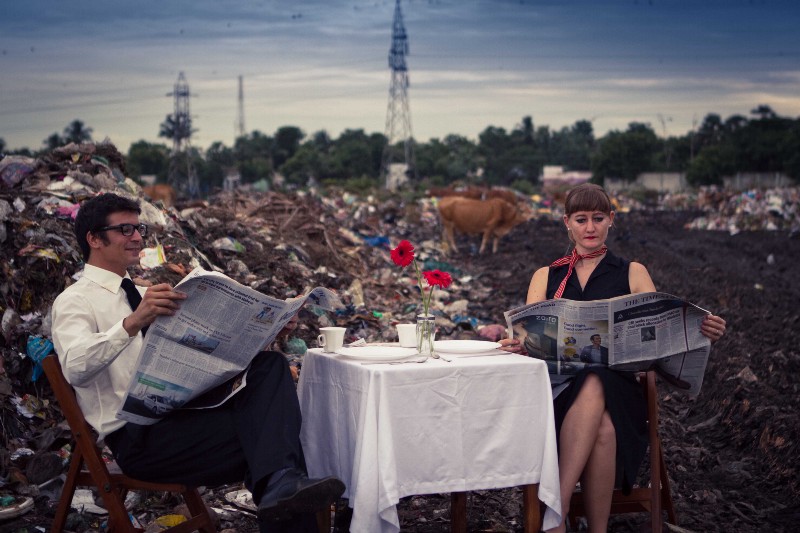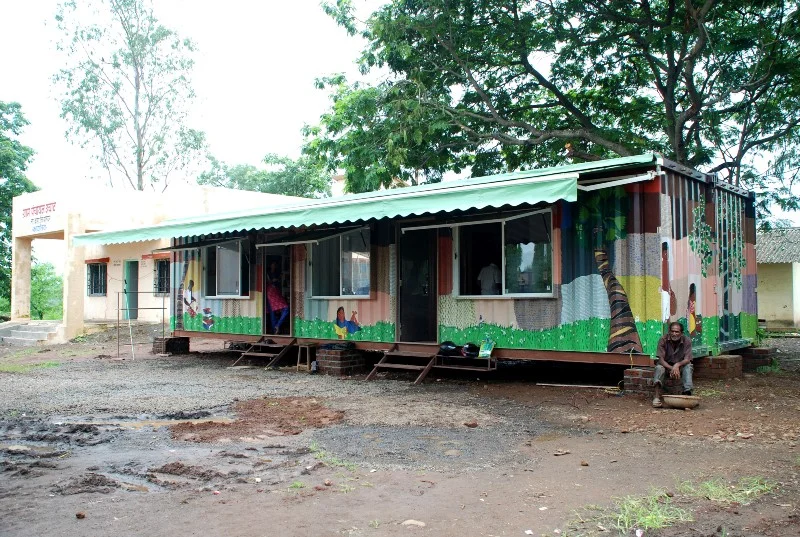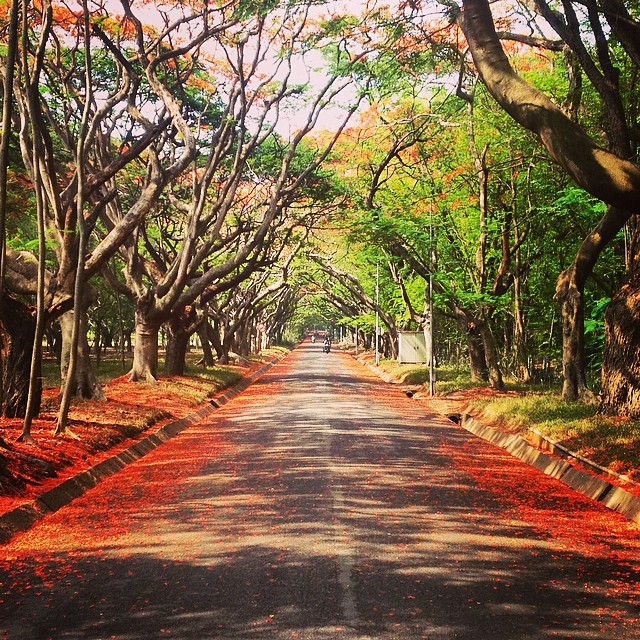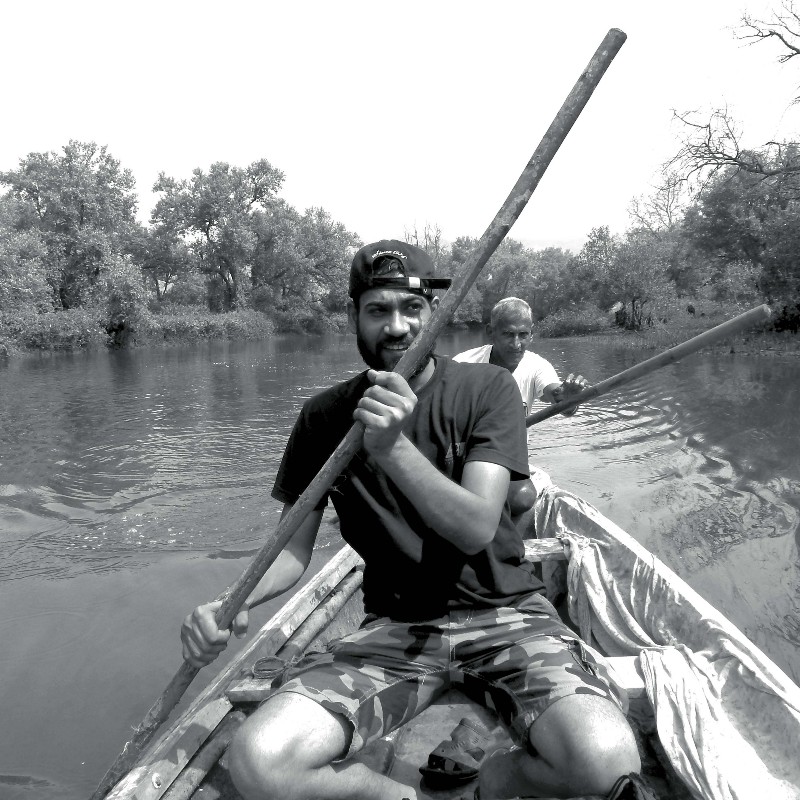E-base Kodagu — A Unique Environmental Education Centre Inspired By An Expedition To Antarctica
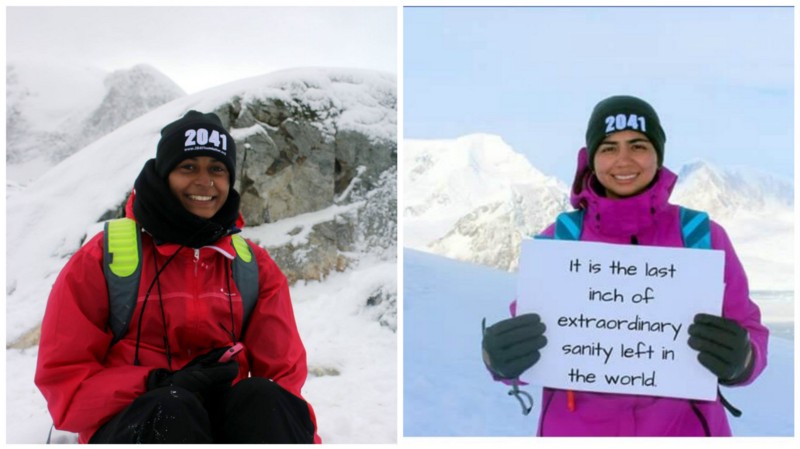
It was quite literally at the end of the earth that E-base Kodagu was conceived. In Antarctica, when Aarati Rao and Charulata Somal met at ‘Leadership on the Edge’ — part of the International Antarctica Expedition 2016 with Sir Robert Swan and the 2041 foundation.
Sir Robert Swan was the first person to walk to both Poles. He is also an environmental leader and an advocate for the protection of Antarctica and renewable energy. Swan is also the founder of 2041 Foundation which is dedicated to building the next generation of informed and engaged climate change leaders who can design future policy for a more sustainable future.
Following his polar expedition, Sir Swan set up the world’s first E-base inAntarctica in 2008 — an education station to teach people about global climate change issues while addressing local sustainability challenges. Subsequently, 4 other e-bases were set up across the world, two of which are in India — one in Pench, Madhya Pradesh and the other in Leh, Ladakh.
Sir Robert Swan at an E-base (Source: 2041.com)
Charulata and Aarati’s encounter was a veritable meeting of minds. The former is an IAS Officer of Karnataka Cadre and presently posted as the CEO of the Zilla Panchayat in Kodagu. She also runs the Titimathi Ashram School, a residential government school for tribal children in Kodagu. Rao, a Fellow at the Third pole Education Base, where she ran a completely solar-powered, internet-enabled education base for the children of rural Ladakh, was no novice to climate change issues either.
In Antarctica, the duo had a truly unique experience, meeting many inspiring persons across nationalities and professions who were doing their bit for sustainability. They found themselves up close and personal with melting ice caps and stricken polar species, rising sea levels and loss of livelihoods — disasters of climate change that are so familiar to us yet so distant and unreal.
“I learnt that we are drops in the ocean, but that each individual is unique and can make a real difference in society just like Robert Swan did”, says Charulata.
Aarati was so humbled by the opportunity to be part of the journey that she writes on her blog, “…I now live to give back what’s been given to me in some form or another. And I promise to pay it forward.”
Staying true to their word, in 2016, the girls established E-base Kodagu in Karnataka, the 5th E-base in the world, to provide quality sustainability education combined with environmental ethics and practical learning about sustainable development practices.
The environs of E-base Kodagu (Image credit: CCF Kodagu Mr Manoj Kumar)
The E-base is located at the Tithimati Ashram School, nestled in the biodiversity rich Western Ghats. The school is a residential school run only for local, tribal children. Charulata tells me that there is much scope for improving the education these children receive.
“My children should have a window to the world and become confident, conscientious children. They should learn to dream, and dream sustainably”, she emphasises.
With a capacity to house 500 children, Tithimathi is itself an epitome of sustainability. Surrounded by coffee plantations, elephant corridors and forests, is is not far from the Nagarhole Tiger Reserve. It is a green and resilient building, made of clay bricks, local stones, Mangalore tiles and locally-woven bamboo. It integrates rainwater harvesting technology, organic farming, and clean energy and is an embodiment of responsible and sustainable living.
The curriculum is designed to empower children to become guardians of their natural heritage and address pertinent local issues such as man-animal conflict prevalent in the area, protecting the Kaveri river, water conservation and native tree preservation. It is an open and creative learning space for the community to learn about environmental conservation and drive change through activism and ownership. Its core values are integrity, passion and a lasting commitment to education for every child. Knowledge exchange and collaboration regularly takes place between with E-bases across the world.
The duo’s efforts have been successful in drawing support and guidance from the government, non-profits and citizens alike. “Our team consists of highly motivated individuals who have gone beyond their call of duty to make our dream a reality”, beams Somal. They are partnering with the
WWF to draw up a curriculum which is ambitious yet relevant and have Robert Swan and the 2041 Foundation and the SAI Sanctuary founders Dr. Anil and Pamela Malhotra on their their advisory team.
E-base Kodagu also runs a 5-month Fellowship Program twice a year, bringing bright, young, motivated individuals to the school to understand the local grassroots level challenges pertaining to development, education, wildlife conservation, local governance and biodiversity. Fellows also lay the foundation of the E-base by helping to design an activity-based sustainability and life-skills curriculum besides working with the children using a multi-dimensional approach. They receive a fixed budget to procure resources deemed necessary for conducting the sessions and are expected to innovate and work frugally to optimise available resources.
However, the journey at the E-base is not be an easy one, warns Charulata. But, with each challenge faced Fellows will grow, adapt to the situation and be equipped with more skills to pursue their passion in the field of education.
As we head towards a global resource crisis, manifesting as hunger, poverty, natural disasters, biodiversity loss and agrarian distress, the need for a sustainable development policy is more imminent than ever before in our history. A collaborative, multi-stakeholder approach is the only way forward in developing favourable policies that straddle ecocentric and anthropocentric approaches that will benefit local communities and environment while fuelling economic growth. We live in a time when individuals are more aware and concerned about their environment, more connected to each other and more empowered than ever before to influence important strategic decisions.
Initiatives like E-base Kodagu are invaluable for educating citizens about the unsustainable nature of the current development paradigm, encouraging conversations about alternatives and developing empowered future leaders who can drive public policy, industry regulations and business goals in a way that are sustainable for all forms of life on the planet.
Maya is a social researcher by training. Her writing has appeared in Scroll, YourStory and The Alternative. She is the Founder of Eartha and tweets @Maya_Kilpadi.



